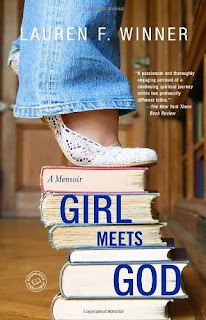The story of these multilingual versions of Lighting Candles in the Dark began about ten years ago. A small group of twelve-year-old students in Novgorod (a town of about 200,000 not too far from St. Petersburg) actually provided the inspiration for the Russian version. Many of the stories were read and discussed in English at a local Novgorod school in 1994. Their instructor, Janet Riley (who had been the organizer behind the joint Soviet-American anthology The Human Experience, and is now the executive secretary of the Friends International Library), had expected them to respond favorably but never expected such deep understanding and enthusiasm.
During one of the last classes, the children were invited to give their honest opinion of the stories and about the appropriateness of providing Lighting Candles in the Dark for other Russian children. Here is a sample of their discussion:
- "There are moments in these stories where we can do the same."
- "They teach us how to act."
- "Yes, they teach us to be kind and to help one another."
- "They show us another way."
- "They show that love is important."
- "It is good for us to know about children in other places in the world."
- "They give us ideas for our lives."
English teachers were also moved by the stories. Some of their comments include:
- "They remind me of the children's stories of Tolstoy."
- "They will help Russian school children relate to children in other parts of the world which is so important."
- "The response on the part of children would not be emotionless - they would understand and feel because the stories are devoted to children."
- "This book will be a valuable resource for teaching English and for stimulating classroom discussion."
With this positive encouragement, we swallowed hard and decided to prepare good translations, swap out stories for some local content, and most insanely of all, limit almost all of the illustrations to children's art. In fact, finding and selecting the art from children in the USA and Russia (with a beautiful candle illustration from Cuba) proved to be the largest logistical struggle, but it was worth it.
The illustrations themselves are available mounted for lending as a gallery show - it has been exhibited in several Quaker venues, including Earlham College and Reedwood Friends Church.
Thanks to a wonderful recent gift from a member of Reedwood Friends, we're within two or three thousand dollars of the front money we need to get this new trilingual version published. It will then join the earlier edition and the other books in the Friends International Library, including Russian editions of Thomas Kelly's Testament of Devotion and John Woolman's Journal.
For me, a side blessing of this project has been the wonderful collaboration of Friends within Friends General Conference (who still publish the English-language edition), Friends United Meeting, and Evangelical Friends International. It can be done! Now we are wondering whether it is time to let this project expand beyond the former Soviet Union. There are certainly other parts of the world where adaptations of this book can contribute to grassroots peace education.
Before we get too carried away, however, we also have to prepare a new Russian edition; we are almost completely out of the first printing, which gives us an opportunity to make improvements and (especially) provide updated contact information for Russian Friends.
While we're on the subject of books ...
Let me recommend Simon Fisher's 2004 Swarthmore Lecture, published by Quaker Books (Britain Yearly Meeting) as Spirited Living: Waging Conflict, Building Peace. Fisher, cofounder and codirector of Responding to Conflict, headquartered on the Woodbrooke campus in Birmingham, England, does a beautiful job of gently provoking Friends to be less detached and amateurish in peace work. He argues persuasively that in the search for faithful effectiveness, we need not be afraid of political conflict, nor of professionalism, properly understood.
Too often I've seen Friends seemingly forced to choose between being deeply rooted in a context of worship OR immersed in passionate activism. Fisher provides both theory and models for overcoming this false choice. His inclusive approach to activism feels very congenial to my own advocacy of the respectful division of labor that ought to occur in any congregation that is firing on all its spiritual-gift cylinders. His examples include the activism of prayer as well as of organizing, training, direct action.
The printed version is an attractive 123-page book available from Friends General Conference or the Quaker Book Shop, London.
A new companion on the path
A most readable volume of embodied spirituality: Girl Meets God: On the Path to a Spiritual Life, by Lauren F. Winner. During a period when I had no spare time for light reading, I gobbled this up in three days. I couldn't resist Winner's meditations on her own spiritual choices, especially since they're certainly not mature reflections from the vantage point of age, but emerged from the ongoing stream of her twentysomething life where nothing is guaranteed except (as she claims) the hold that Jesus has on her life.
I was equally interested when she discussed things completely outside my own experience (the meshing and clashing of her Jewish and Christian identities) and when I could identify far more closely (the pull between wholehearted evangelicalism and the world of culture and, ahem, sophistication ... or at least worldly credibility).
Her love affair with books (their content and their *blush* sheer physical beauty) is another point of contact with me. I had more of a struggle with her deep and eloquently expressed commitment to liturgy, but it felt good, even instructive, to rub against the depth of that commitment, letting it challenge my severe attitudes toward any form of obligatory theatricality in Christian worship. Maybe that's a discussion for another day.
Although Winner addresses the American culture wars, her book does not encompass the deeper struggle between the spirit of piety and the spirit of social prophecy in the face of our culture's systemic death-worship. For the most honest and moving account of that internal struggle, I still recommend Jennifer Haines's Bread and Water (see below, July 12).




2 comments:
Thanks for the kind words, and enjoy Simon Fisher.
Good post. I linked to it from one of mine about our meeting's children's program. -- Kirby
Post a Comment